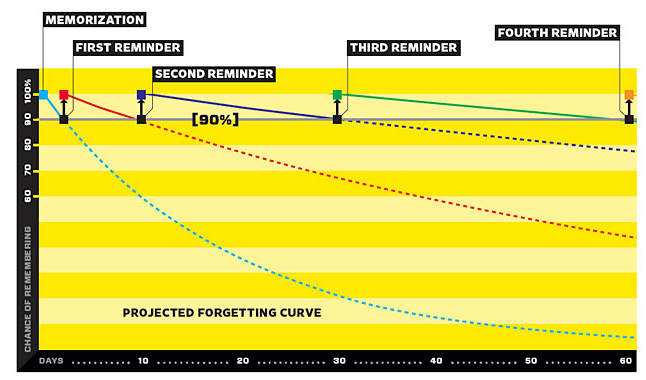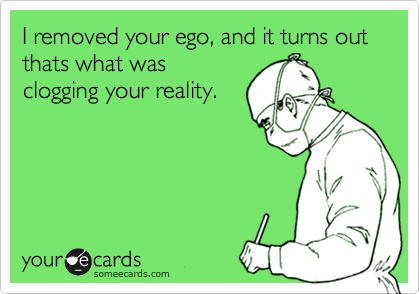Easy to confound A.L.T.E.R. for one of these 5-step-something acronym for a self helpy series. Unfortunately, though an acronym, and a 5 step process, it won't help you in anything. This is a careful observation of the development, maintenance and improvement of a hacker mind. A.L.T.E.R. = Amplify, Link, Transform, Endure and Rise.
STRUCTURE + STORIES
In the last post, we established how important stories are. They are the lattices our mental life thrives on. They determine what and how we remember things, skills and ourselves. I believe for instance one reason why the new testament is more popular than the old testament is because it's a single more compelling story:
- Partly because it's centred around a single quite interesting hero: A man comes to earth in a bizarre way. An alien. He has powers.
- But also because it's more structured: It leads the reader and the audience from a to z. The man grows his power and waits for the right time to unveil it.
How much easier it must've been for the disciples to spread the word compared to the jews. Interestingly, the Jesus story relates to a more universal story structure. Here's one video about that structure, Ben, his father and cancer:
The author explains the structure of the dramatic arc and concludes as to what a universal story structure might look like:
- Exposition
- Rising action
- Climax - "How can a father have fun with his cancerous kid when he knows he is dying?"
- Falling action
- Denouement
STRUCTURE + SKILLS
In the very first part (Amplify) of the series. We've mentioned how the mind deconstructs and reconstructs material continuously. That same cycle of deconstruction and reconstruction is also what enables creativity. That is where, I believe, 'everything is a remix' stems from.
And the confirmation came however while learning html on my own, copying the tutorial videos' lines of codes. In itself, that single act felt enriching but I only felt like learning when I digressed, improvised and tried new things on my own correcting my mistakes thereafter by going back to the video. So the rule to learn and the route to creativity is 'copy' but the imperative is 'transform'. We need to push the limits of our knowledge, in a sense, to truly grasp what we already know. We need to take a courageous stare at the unknown to understand the known.
Peek off the cliff
The question that came to mind was much more 'when do we best learn?' and I believe that is the moment when we 'peek over the cliff'. We stand on the shoulders of giants yes and we must. But it's only by jumping off them that we make progress. It makes me realize why we spend millions on telescopes more powerful than the Hubble. We need that peek over the cliff, out of the known. And the kid inside us starts jumping at the prospect that we might one day 'see' the borders of the universe! But I digress :)
There are so numerous skills one can hack or master: Style, Diet, Focus, Connection, Empathy and even Happiness. Happiness for instance, once deconstructed, yields the following:
- Happiness is relative. We conclude we're happy when we see others' feelings of happiness
- Happiness stems from several precursors
- Happiness is personal
- Happiness involves a time factor in that it builds up with duration and more time investment
- On that time trajectory, one needs a repeatable process to make sure happiness actually builds up. That is a very procedural or scientific aspect. Happiness becomes the proven result of a repeatable "experiment"
STRUCTURE + SYSTEMS
So the hacking mind is a scientific mind: It needs a repeatable process that is re-usable and repeatedly effective. And for our purposes, what will make us take that leap and jump from "copy" to "transform" is comparison. Comparison could very well be a universal door to understanding and a starting point to hacking anything. Appropriately, from the book "You can do anything!":
The process by which you reason is known as logic. Logic teaches you how to derive a previously unknown truth from the facts already at hand. Logic teaches you how to be sure whether what you think is true is really true. … Logic is the supreme avenue to intellectual truth. Don't ever despair of possessing a logical mind. You don't have to study it for years, read books and digest a mountain of data. All you have to remember is one word – compare. Compare all points in a proposition. Note the similarity – that tells you something new. Note the difference – that tells you something new. Then take the new things you've found and check them against established laws or principles. This is logic. This is reason. This is knowledge in its highest form.
Comparison is the leanest deduction tool: Light, fast and effective. It is certainly the best way to reach a reliable conclusion with minimal effort. Comparing one's work to others' work is the best way to advance from "copy" to "transform" as transformation is effectively a synonym of differentiation. Just as in science, one realises they've 'made science' after the fact, same with ideas. This is a key to creativity. And to cite a creative 'you can only connect the dots looking backwards':
Echoing Steve Jobs, who in his own fantastic commencement address famously cautioned that "you can’t connect the dots looking forward; you can only connect them looking backwards," Patchett urges these new graduates to be sure to return at some point – this, she argues, would let them reflect on the series of small choices which, as William James put it a century ago, "[spin] our own fates, good or evil, and never to be undone."
The repeatable or scientific aspect leads us to our fourth blog in the A.L.T.E.R. series which is endure. Once we've made the step to start transforming, we need to make the habit sink in. This is the first step towards automation.




































































